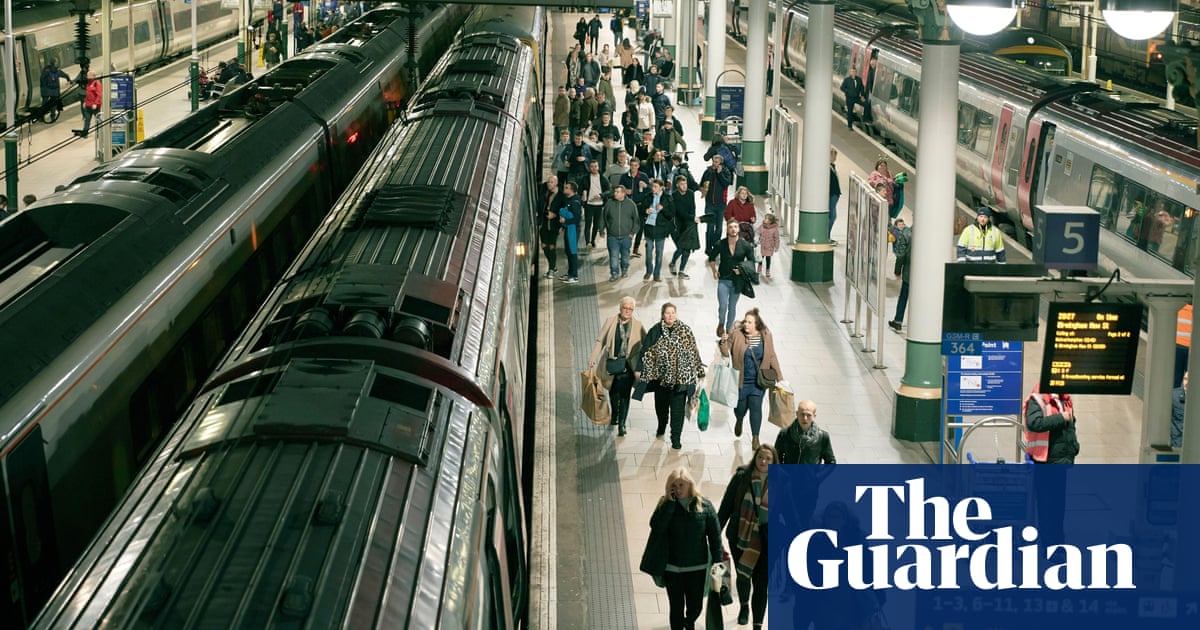Ministers are bidding to install a highly paid rail industry figure in the Department for Transport to entrench plans to create Great British Railways (GBR) before the general election.
The DfT could break Whitehall’s pay structure to create the new senior post, in an attempt to accelerate reforms for a new public body managing the country’s rail transport – although the Treasury is reluctant to sanction another DfT salary beyond normal pay grades.
It comes as rail fares in England and Wales rose by 4.9% on Sunday, which ministers said was “striking a balance”, with the railway still requiring large public subsidy. Labour said it meant fares had risen by 66% since 2010, almost twice as fast as wages.
A new director general overseeing the integrated railway would sit above current rail mandarins, to mirror the setup of the Conservatives’ planned GBR – a move that could slow or hinder Labour’s own eventual reform plans, some fear.
Transport ministers and GBR transition team leaders are backing a reorganisation that could recruit an industry figure earning well above the department’s permanent secretary.
The DfT declined to comment on what it called an individual human resources matter. A government source said the department was continually adapting its structures to support the delivery of rail services, including the rail reform plan.
Progress in setting up GBR has foundered in the past on the division between the DfT and the Treasury over the powers of a semi-autonomous body.
The reforms aim to align “track and train” within the industry, by bringing together Network Rail, which manages the infrastructure, in an integrated rail body that would also oversee train operations and possibly also award contracts.
A draft rail reform bill was published last month, which the rail minister, Huw Merriman, said he believed could still become law, despite the apparent lack of legislative time before an election.
Labour has yet to outline its own policy, bar a promise to take train operations into public ownership as contracts expire. Although some fear that ministers are trying to entrench reform that could stymie a new government, Labour has also spoken of establishing a unifying body and a source suggested a DfT restructure could fit with its eventual plans.
The DfT proposals could yet be blocked by the Treasury, which has sought to control escalating rail spending. The cost of setting up GBR alone has risen from £205m to a forecast £381m.
The highest-paid senior officials on the public payroll have long come from rail, with the list headed by Andrew Haines, leader of the Great British Railways transition team and boss of Network Rail, earning £589,000 according to government figures published in July 2023.
after newsletter promotion
The DfT also has form in directly employing within the department an official on an extraordinary salary. Peter Wilkinson, managing director of passenger services, who was permanently hired to improve rail franchising in 2014, earns £265,000.
Candidates in the frame for the new post could be drawn from the senior managerial ranks of Network Rail, all earning about £330,000, such as Alex Hynes, already running Scotland’s railway as a more integrated system.
The DfT did not confirm or deny moves, but a government source said it would ensure value for money for the taxpayer.







